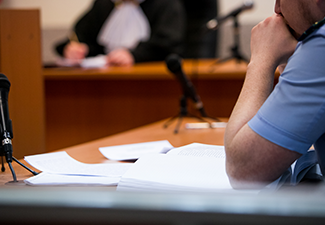What to Expect at Your Arraignment
June 1, 2023
 Being charged with a crime can be a frightening experience. One crucial part of the criminal justice process is the arraignment. Often, individuals may not fully understand what an arraignment entails and what to expect.
Being charged with a crime can be a frightening experience. One crucial part of the criminal justice process is the arraignment. Often, individuals may not fully understand what an arraignment entails and what to expect.
Seeking legal counsel can help you understand the process and the rights that you have. An attorney will prepare a defense strategy tailored to your specific situation. Contact Attorney John Goalwin at The Law Office of John Goalwin to start preparing for the arraignment process. From our office in Los Angeles, California, we also serve clients in Van Nuys, Norwalk, Compton, and Torrance.
What Is an “Arraignment?”
An arraignment is a formal hearing that occurs after a person has been arrested and charged with a crime. At the arraignment, the charges will be formally presented to the defendant, and they will be required to enter a plea. This can be one of three options: guilty, not guilty, or no contest. If a guilty plea is entered, a sentence will be given at the same hearing or at a later date. On the other hand, if a not-guilty plea is entered, a trial date will be set.
What Happens During the Arraignment?
Many people facing criminal charges are nervous about the arraignment process as they do not know what to expect. Below are the five main things that happen during the arraignment to ensure that you know what to expect and can prepare accordingly:
1. Formal Reading of the Charges
During an arraignment, the prosecutor will read out the charges against you. You will be asked to confirm that you understand the charges. If you do not understand the charges, you can ask for them to be explained to you. Listen carefully to the charges as they will determine the course of the rest of your case.
2. Informing You of Your Constitutional Rights
You will also be informed of your constitutional rights during an arraignment. This includes the right to remain silent, the right to an attorney, and the right to a fair trial. It is important to understand these rights as they are essential to protecting your legal rights throughout the case.
3. Entering a Plea
Once the charges have been read out, you will be asked to enter a plea. It is crucial that you speak to your attorney before your arraignment to determine which plea is best for you. If you plead guilty, you will be sentenced immediately. If you plead not guilty or no contest, your case will proceed to trial.
4. Setting Bail
If you are charged with a crime, you may be required to post bail in order to be released from jail until your trial. The judge will set bail based on the severity of the crime, your criminal history, and other factors. If you cannot afford bail, you may be held in jail until your trial.
5. Scheduling Future Court Dates
Finally, the judge may schedule future court dates for your case. This usually includes a trial date, as well as any pre-trial conferences or hearings. It is important to attend these court dates as failing to do so may result in a warrant for your arrest.
Can the Judge Send Me to Jail at an Arraignment?
The primary purpose of the arraignment is to inform you of the charges against you and allow you to enter your plea. However, if you have an outstanding warrant or violated your bail conditions, the judge may revoke your bail and have you taken into custody. Additionally, if you cannot afford bail, you may remain in jail until your trial.
Do I Need an Attorney for the Arraignment Process?
While you are not required to have an attorney present at the arraignment, it is a good idea that you do. An experienced attorney can provide valuable advice on your legal options, explain the charges against you, and represent your interests during the arraignment process. They can also negotiate with the prosecutor to try and get the charges reduced or dismissed. Keep in mind that anything you say or do at the arraignment can be used against you, which is why your attorney will explain what you can and cannot say.
Speak With an Experienced Attorney
Understanding the arraignment process is crucial if you are facing criminal charges. It is the first step in the criminal justice process and can set the tone for the rest of your case. With over 45 years of legal experience, Attorney John Goalwin can walk you through the legal process and provide you with the representation you need at an arraignment. Get in touch today to set up a free case evaluation.